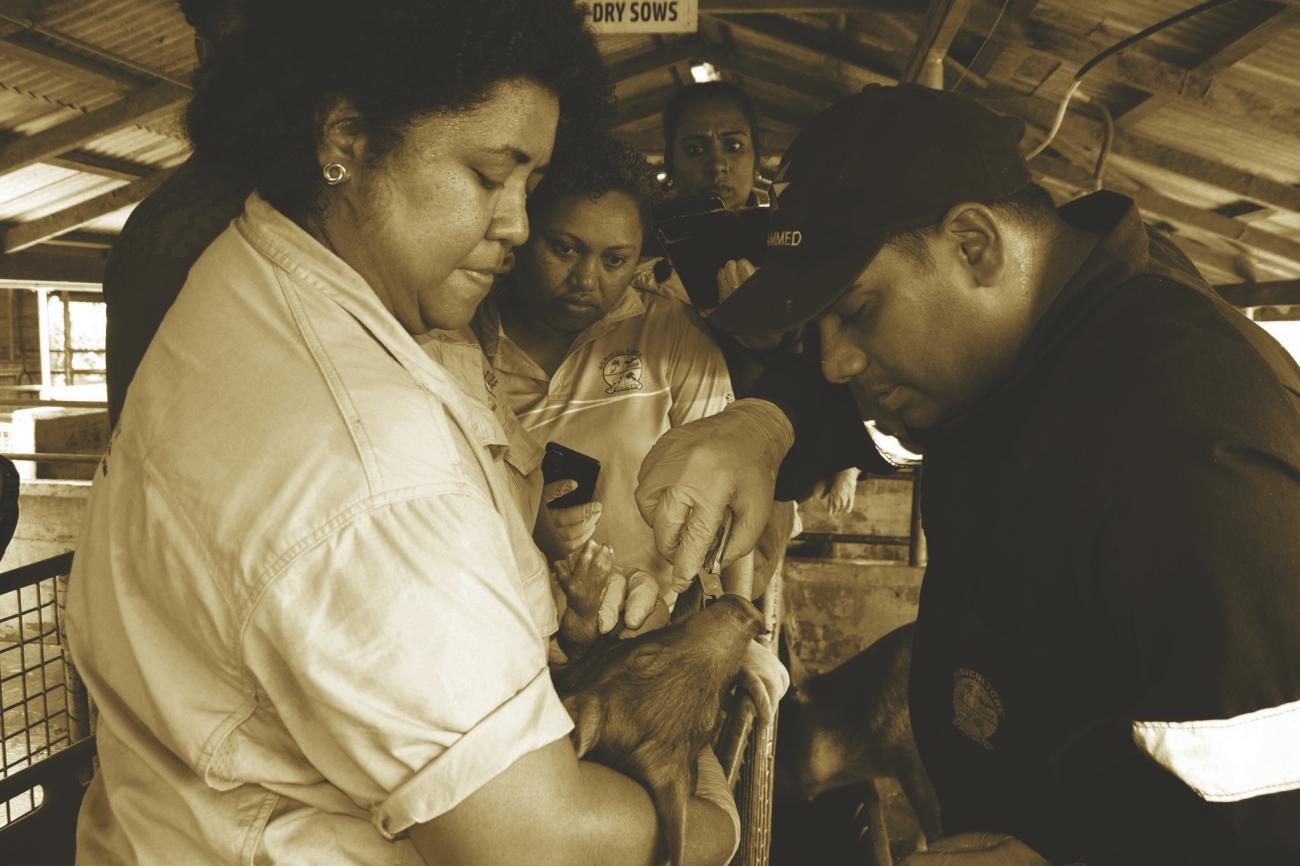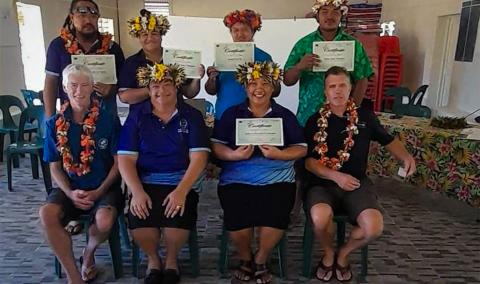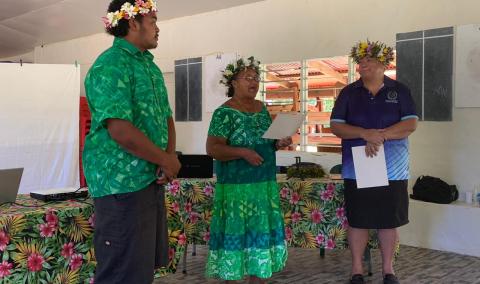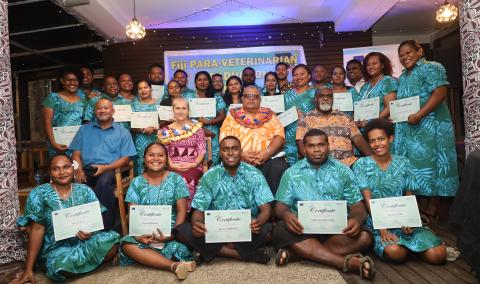(contenu disponible en anglais uniquement)
Strengthening animal health in the Pacific
Up to 30 animal health, biosecurity, and livestock officers from Fiji and the Cook Islands have gained vital knowledge and experience following a 16-week Para-veterinary training organised by the Pacific Community in collaboration with their Ministry of Agriculture.
Funded by the European Union through the Pacific Community(SPC)-implemented Safe Agricultural Trade Facilitation through the Economic Integration in the Pacific (SAFE Pacific) project, the participants learnt ways to improve animal management, how to treat animals with health problems, the importance of meat hygiene and waste disposal, how to diagnose animal diseases, the importance of quarantine and the prevention of exotic diseases from entering the country.
“We are proud to witness the Cook Islands and Fiji’s commitment to this vital training programme, which since its inception in 2013 has been implemented across 15 member countries,” said SPC Pacific Head of Veterinary and Animal Production Services (PHOVAPS) Coordinator Elenoa Salele.
“This effort is important for our region in meeting the growing demand for additional para-veterinarians in the field. The training responds to one of the key priorities identified in the recently endorsed Pacific Animal Health and Production Capacity Building Plan (PCBP) on the lack of access to veterinarians in the region.”
The Paravet training is a flagship programme that was developed and implemented by SPC with technical support from the New Zealand’s Ministry for Primary Industries (MPI) Animal Health and Biosecurity Pacific Partnership team and the Australian Department of Agriculture, Fisheries and Forestry (DAFF) Pacific Engagement Program for Animal Health team.
The training course is designed as a distance-learning programme focussing on animal health and production issues for livestock found in the Pacific, including cattle, goats, sheep, pigs, horses and poultry.
Head of the Cook Islands Ministry for Agriculture, Ms Temarama Anguna-Kamana welcomed the training saying it would strengthen their ministry’s work on animal surveillance and diagnosis.
“Having our staff complete this para-vet training allows us to maintain these skills in-country on how to treat animals with health problems and diagnose animal diseases. While this is not a full Veterinary qualification, this is a first step in this field and assures our livestock owners that we at the Ministry of Agriculture can provide the services and advice needed to care for their livestock,” she said.
"It also reinforces our position when we communicate to livestock owners and the community about the significance of proper livestock management, maintaining meat hygiene standards, and responsible waste disposal. We explain why quarantine measures are essential to prevent the introduction of exotic animal diseases into our country."
Fiji Ministry of Agriculture (MoA) Locality Livestock Officer, Mr Laitia Busele, shared the course has greatly enhanced his knowledge and understanding of animal management, particularly with maintaining productivity, the intricacies of the animal body, diseases and their treatment, and effectively identifying symptoms in animals.
Biosecurity New Zealand’s Programme Manager of Animal Health and Biosecurity Pacific Partnership, Dr Andrew McFadden said: “Walking alongside this great group of people and seeing them develop skills, knowledge, and confidence has been awesome for myself and the New Zealand programme team, and we are so proud of them.”
On week 16 of the course, participants undergo summer school for practical and theory revision before sitting for final exams. Following its successful completion, they graduate with certification from SPC and their respective agriculture ministries.’
In addition to the Cook Islands and Fiji, the para-vet training has also been completed in Nauru and launched in Niue, Tonga, the Republic of Marshall Islands, and Kiribati. Hence more para-vets are expected to graduate after their respective Summer Schools and final exams later this year.



